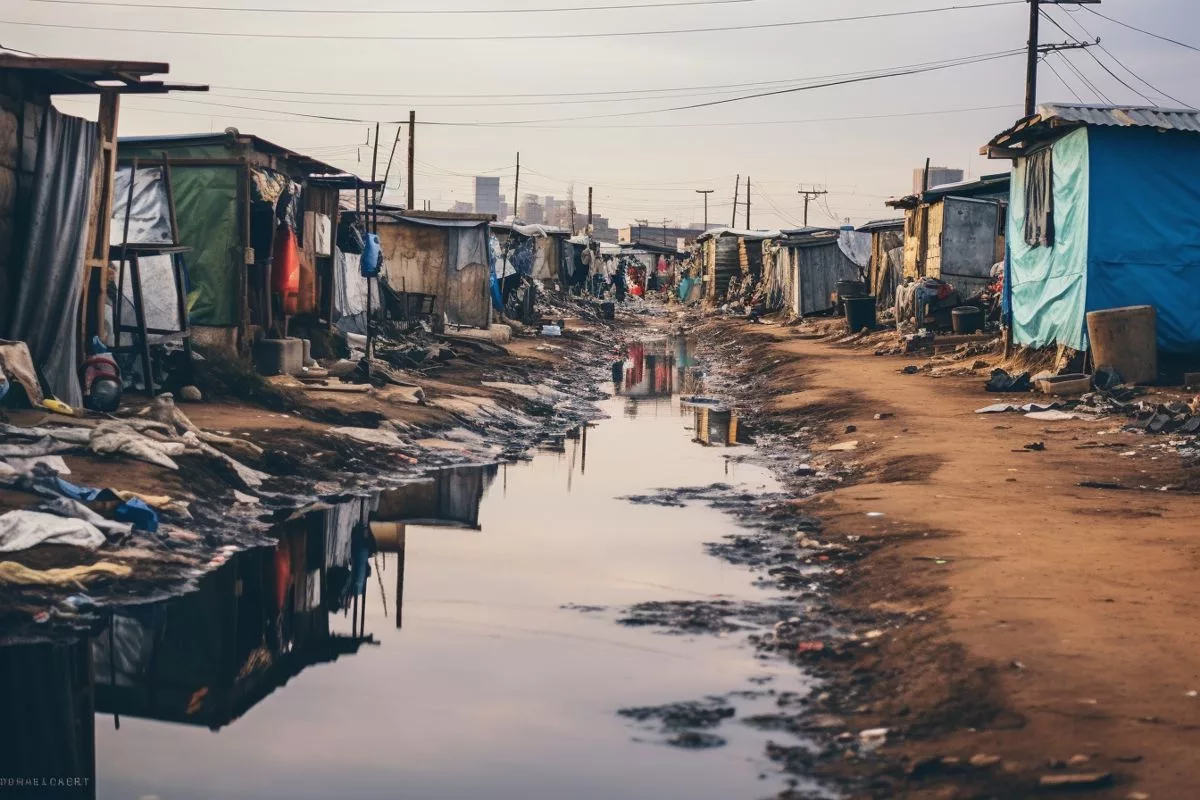Cape Town will see a significant decrease in human settlements grants, losing over R107 million in the 2023/24 financial year, resulting in R37 million being eliminated from the Informal Settlement Upgrading Partnership Grant and R70 million from the Urban Settlements Development Grant. The cuts will impact vulnerable members of society who depend on grant funding for vital services and aid. The city is now emphasizing private-sector housing delivery and giving priority to the rapid release of land for affordable housing.
What are the consequences of housing grant cuts in Cape Town?
Cape Town will face a significant decrease in human settlements grants, losing over R107 million in the 2023/24 financial year alone. The cuts will result in R37 million being eliminated from the Informal Settlement Upgrading Partnership Grant and R70 million from the Urban Settlements Development Grant. The most vulnerable members of society who depend on grant funding for vital services and aid will be impacted the most. The city is redirecting its focus towards facilitating private-sector housing delivery, prioritizing the rapid release of land for affordable housing.
Housing Grant Cuts Spark Outrage and Concern
Finance Minister Enoch Godongwana’s announcement of nationwide cuts to grant funding for municipalities and provinces in the Medium-Term Budget Policy Statement on November 1st has been met with widespread dismay and apprehension. Cape Town will be hit hard by these cuts, as it will experience a significant decrease in human settlements grants, losing over R107 million in the 2023/24 financial year alone.
Cape Town Mayor Geordin Hill-Lewis voiced his disappointment with the decision, asserting that the National Cabinet opted to trim crucial pro-poor funding instead of tackling wasteful government spending. He pointed out the R3.5 billion spent on VIP security and mentioned several national government departments that only serve to bloat the National Cabinet, such as Small Business, Women, Youth, and Children. Unfortunately, the repercussions of these budget cuts will be felt most acutely by society’s most vulnerable members who depend on grant funding for vital services and aid.
The Wider Consequences of Reduced Funding
The ramifications of these cuts will undoubtedly reach far beyond their immediate financial impact. Cape Town’s local government, already struggling with the problems of corruption, waste, and a weakened economy, now faces an uphill battle in its quest to enhance the lives of impoverished residents. Mayor Hill-Lewis underlined the importance of safeguarding expenditure aimed at upgrading services in informal settlements, providing housing, and constructing essential infrastructure.
The cuts will result in R37 million being eliminated from the Informal Settlement Upgrading Partnership Grant and R70 million from the Urban Settlements Development Grant. In light of these alarming figures, the Mayor emphasized the need for increased Equitable Share funding, citing census data that indicates Cape Town is on course to become South Africa’s most populous city. With the city’s population rapidly approaching the five-million mark, delivering on planned infrastructure investments, which make up 50% of planned municipal infrastructure spending in the country over the next three years, is crucial.
Despite these obstacles, the city’s leaders remain committed to advocating for their constituents and pursuing a progressive, pro-poor, and pro-growth agenda. Mayor Hill-Lewis pledged that Cape Town would persist in its fight for increased funding while adapting to the challenges brought on by the national cuts.
Cape Town’s Response: Emphasizing Private Sector Housing Delivery
In light of the diminishing housing grant funding, Councillor Carl Pophaim, the City’s Mayoral Committee Member for Human Settlements, explained that Cape Town is redirecting its focus towards facilitating private-sector housing delivery. The city now gives priority to the rapid release of land for affordable housing, especially state-subsidized social rental opportunities.
While the Medium-Term Budget Policy Statement confirmed that social housing subsidies would be increased to keep up with inflation, Councillor Pophaim expressed concern for the elderly, disabled, and other vulnerable groups who still depend on free housing delivery from the state. The R107 million reduction in conditional grants this year will significantly impair those who require such support.
Councillor Pophaim also stressed the city’s track record of efficiently using grant money, noting that the Human Settlements Directorate had spent 99.3% of its capital budget of over R880 million in the previous financial year. The city will persist in making the case for shielding this funding from additional harmful cuts.
The recent reductions to Cape Town’s housing funding will have far-reaching effects on the city’s most vulnerable inhabitants. As the local government grapples with increasing challenges stemming from these financial limitations, the dedication of city leaders to advocate for more funding and adapt to a changing landscape is more critical than ever. The success of this effort will be essential in guaranteeing a brighter future for Cape Town and its residents.
1. What are the consequences of the housing grant cuts in Cape Town?
Cape Town will lose over R107 million in the 2023/24 financial year, with R37 million being eliminated from the Informal Settlement Upgrading Partnership Grant and R70 million from the Urban Settlements Development Grant. This will impact vulnerable members of society who depend on grant funding for vital services and aid.
2. Why did Cape Town lose its housing grants?
Nationwide cuts to grant funding for municipalities and provinces were announced in the Medium-Term Budget Policy Statement on November 1st by Finance Minister Enoch Godongwana.
3. What is Cape Town doing in response to the housing grant cuts?
Cape Town is emphasizing private-sector housing delivery and giving priority to the rapid release of land for affordable housing, especially state-subsidized social rental opportunities.
4. Will social housing subsidies increase to keep up with inflation?
Yes, the Medium-Term Budget Policy Statement confirmed that social housing subsidies would be increased to keep up with inflation.
5. Who will be most impacted by the housing grant cuts?
The most vulnerable members of society who depend on grant funding for vital services and aid will be impacted the most.
6. What is the Human Settlements Directorate’s track record of using grant money efficiently?
The Human Settlements Directorate had spent 99.3% of its capital budget of over R880 million in the previous financial year.
7. Will the city continue to fight for increased funding?
Yes, Mayor Hill-Lewis pledged that Cape Town would persist in its fight for increased funding while adapting to the challenges brought on by the national cuts.
8. What is the importance of delivering on planned infrastructure investments in Cape Town?
With the city’s population rapidly approaching the five-million mark, delivering on planned infrastructure investments is crucial, as they make up 50% of planned municipal infrastructure spending in the country over the next three years.








